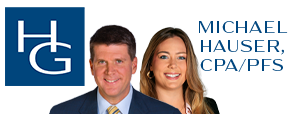The Benefits of Maxing Out Your 401(k)
Do you have a million dollars? The answer might be “No” right now, but it’s entirely possible that you could be a millionaire one day. In fact, you may need to be! If your retirement spans for 20 or 30 years, it could take well over $1 million to fund that retirement. This is one reason you should contribute the maximum to your 401(k) plan.¹
Focus on Your 401(k). Employers have long wondered: why don’t people contribute more to their 401(k)s? Some people think they don’t speak financial so they avoid focusing on the topic, or they mentally file “401(k)” under “boring”. But the advantages of a 401(k) shouldn’t intimidate or bore you; they should spur you to action.
Tax-deferred growth and compounding. The money in your 401(k) has the potential to compound year after year on a tax-deferred basis. The earlier you start, the more compounding you get. To put that in context, let’s imagine that at age 30, you begin putting $2,400 into your 401(k) each year and receive an 8% annual return. By age 655, you have grown that investment to $437,148. Start that saving process just five year later at age 35, and you’d only have $285,588 for retirement, a big difference. These annual contribution limits are indexed for inflation. *²
The power of potential matching contributions. Why would anyone turn down free money? Big companies will often match an employee’s 401(k) contributions. Usually, the corporate match is 50¢ for each dollar up to 6% of your salary.³
Reducing your taxable income. This an immediate benefit that many employees overlook. Your 401(k) contributions are pulled out of your wages before taxes are withheld (pre-tax dollars). So you get reduced taxable income and tax-deferred growth potential; you pay taxes on 401(k) assets when you withdraw them from the plan. With the Roth 401(k), the contributions are after-tax (no reduction in taxable income), but you can enjoy both tax-free compounding and tax-free withdrawals.
Why not take advantage? If you don’t contribute greatly to your 401(k), 403(b), or 457 plan, you are ignoring a great retirement savings and investment opportunity. Talk to your financial advisor about your 401(k) and other great resources to save for retirement.
Mike Hauser may be reached at 314-822-0344 or mike@hausergroupwm.com, or visit www.hausergroupwm.com.
Qualified accounts such as 401ks are accounts funded with tax deductible contributions in which any earnings are tax deferred until withdrawn, usually after retirement age. Unless certain criteria are met, IRS penalties and income taxes may apply on any withdrawals taken prior to age 59 1/2. RMDs (required minimum distributions) must generally be taken by the account holder within the year after turning 70 ½.
This material was adapted from materials prepared by MarketingPro, Inc., and does not necessarily represent the views of the presenting party, nor their affiliates. This information has been derived from sources believed to be accurate. Please note – investing involves risk, and past performance is no guarantee of future results. The publisher is not engaged in rendering legal, accounting or other professional services. If assistance is needed, the reader is advised to engage the services of a competent professional. This information should not be construed as investment, tax or legal advice and may not be relied on for the purpose of avoiding any Federal tax penalty. This is neither a solicitation nor recommendation to purchase or sell any investment or insurance product or service, and should not be relied upon as such. All indices are unmanaged and are not illustrative of any particular investment.
* Keep in mind, this is a hypothetical example and is not representative of any specific situation. Your results will vary. The hypothetical rate of return used does not reflect the deduction of fees and charges inherent to investing. There is no guarantee that an 8% annual return will be achieved.
Citations.
1 – fool.com/retirement/general/2016/01/25/how-much-money-will-you-need-in-retirement.aspx [1/25/16]
2 – irs.gov/Retirement-Plans/Plan-Participant,-Employee/Retirement-Topics-401k-and-Profit-Sharing-Plan-Contribution-Limits [10/26/15]
3 – irs.gov/Retirement-Plans/Plan-Participant,-Employee/401(k)-Resource-Guide-Plan-Participants-401(k)-Plan-Overview [10/26/15]

